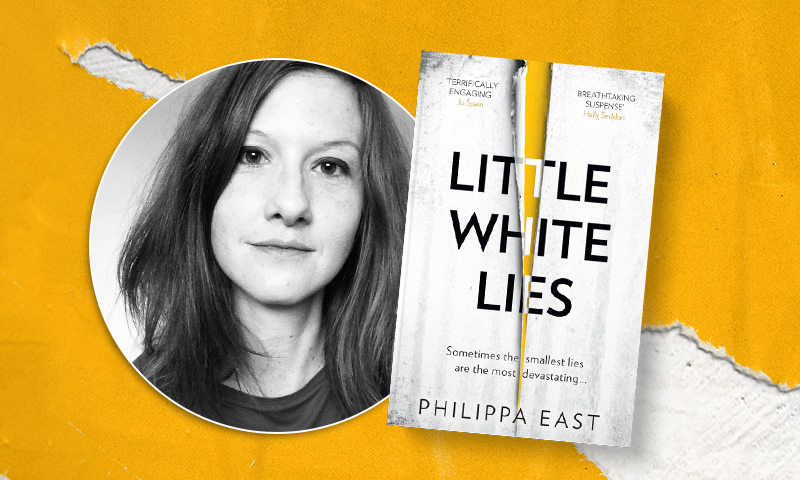I never set out to be a writer…
When people learn that I’m about to have my first book published, they often ask: so, did you always want to be a writer? I know lots of authors who have felt exactly that way; however, it wasn’t quite like that for me. Like many people, I wrote stories as a kid and enjoyed English at school – but after school I went to university, and after that I trained as a clinical psychologist, and after that I found myself working full time in the NHS.
An idea for a novel
It wasn’t until I was about thirty that I started to dabble in writing again, mostly working on short stories. Then I caught a snippet of a news story on TV – an image of a family in a courtroom after their missing teenager had been found. Suddenly, my mind was filled with an idea for a book – the novel that would eventually become Little White Lies.
I knew from the very start that I wanted to write a book about a missing child, and I knew there was a solid precedent of popular books on the shelves exploring this topic. But as a psychologist and therapist, I have always cared most about the pieces of the story that never usually get told. Tragically, children go missing all the time; I was fascinated by what might happen once a missing child came home.
Writing what you know
Heartbreakingly, cases of children being found alive months or years after their disappearance are incredibly rare. Even with such cases, most books – fiction and non-fiction – are written about efforts to find the child, or the person’s experiences of captivity. But my story started where most of these books ended. So how on earth was I going to write about that?
The question really quite stumped me until I realised that, while I had never been involved in a real-life case like Abigail’s in Little White Lies, maybe I did have experience that could help me. In my previous job in the NHS, I had specialised in therapy for adult survivors of childhood trauma. And the more I explored Abigail and her family’s story, the more I found that the themes which showed up in this family’s narratives mirrored so many of those that I had encountered in the dozens of cases I had worked with.
The heart of the novel
Little White Lies begins with the miraculous news that Anne’s missing daughter has been found. Against all odds, Abigail has escaped and survived her abduction. In the same way, the clients who I was seeing in my work had (physically) survived their childhood experiences. But for both Abigail and my clients, this was where a whole new journey would begin.
Little White Lies is about a family trying to heal after the very worst of traumas. The book focuses deeply on the relationship between Abigail and her family – her mother Anne especially – both before and after her abduction. The more I wrote, the more I found myself delving into issues of responsibility and guilt, the instinctive desire to avoid what is most painful, and the healing power of acknowledging what went wrong. All of these were themes I had encountered many times in my therapy work, and over time, these themes came to form the very heart of the novel.
What studying psychology has given me as a writer
Little White Lies went through many, many drafts as I wrote it, but it was only when these themes came together for me that I was able to shape the story into the book you’ll read today. It’s a book that I am really proud of.
These days, I am struck time and again by how much being a writer and being a psychologist have in common. Both therapy and writing are all about words and narratives; these truly are the “tools of our trade”. In both fiction writing and in the process of therapy, we share and absorb stories in order to make sense of the world, and try to understand our own complicated human natures. And both characters in stories and the clients in my practice go on profound journeys of change.
Looking back now, I wonder whether I would ever have had the confidence to write Little White Lies without my background in psychology. To be honest, I am not sure that I would!
So while it’s true that I didn’t set out to be a writer, maybe that actually turned out for the best. Because in the end, this book owes so much to the years I have worked as a therapist and psychologist, and so it’s quite possible that Little White Lies would never have been written if I hadn’t set out to become a psychologist first.
Get your copy of Little White Lies by Philippa East here!



